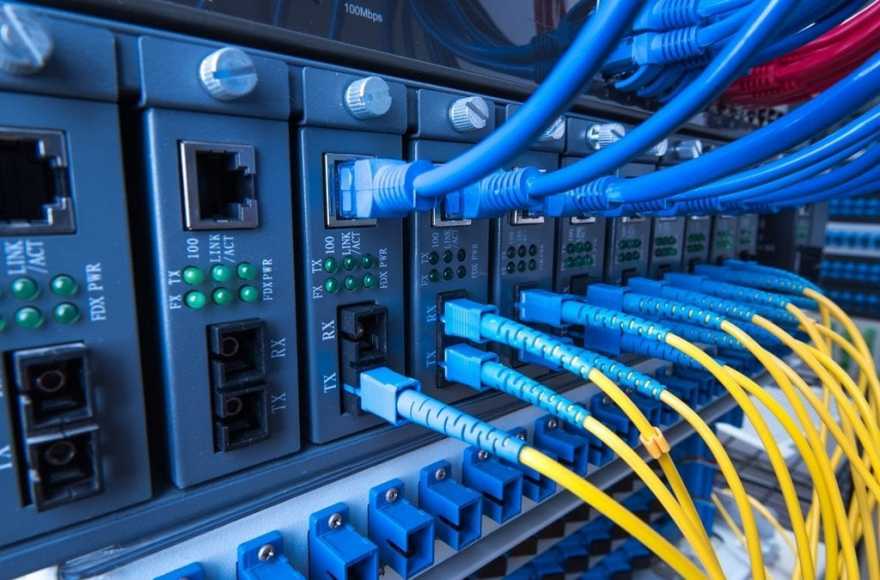As our daily entertainment increasingly comes from online sources, Internet speed has become a very important factor. In a world where people can legally download movies and watch streaming television programs from their PCs, users don’t want to sit and wait to watch their shows.
For this reason, when they buy a new broadband package, users want to know how fast the connection will be. Unfortunately, this has its own little enigma, which is the problem of megabits against megabytes.
The confusion between megabits and megabytes is widespread among Internet users. That’s why we’re here to eliminate some uncertainties and help you convert megabits into megabytes.
The problem
Suppose you are interested in getting new Internet service. Observe the speeds offered by a package that advertises speeds of “up to 50 Mbps”. If you buy this package, how fast do you think your download speed is?
It is easy to assume that “Mbps” means “megabytes per second” and that if you buy this package, you would be able to download files at 50 MB per second.
However, take a look at the example above. You will notice that it advertises the speed in “Mb ps” and the speed is “up to 50 Mb per second” and not MB (MBps).
Add this to the fact that we write megabytes as “50 MB”. The lowercase “b” in this example is very important since it shows that we are not talking about 50 megabytes per second. This Internet speed is currently advertised at 50 megabits per second, which is very different!
The confusing part of megabits and megabytes
This problem occurs more often when it comes to Internet service providers. Imagine that a company offers speeds up to 100 Mbps. Because we are more used to managing megabytes (for storage), people often assume that they will have a speed of 100 megabytes per second. It is not so.
The abbreviation of megabit is Mb and a megabyte would be written as MB (in CAPITAL LETTERS). That slight difference in capitalization is what creates confusion because bits and bytes sound and are written in the same way, but they are different units of measurement.
- MB- megabytes
- Mb- megabit
100 Mb will appear increasingly impressive at 12.5 MB. The advantage of marketing certainly helps to make more sales.
Internet service providers have adapted the megabit as a standard for speed measurement. It is more logical for Internet service providers to do so considering that data is sent as single bits at a time. The use of this unit of measurement is more accurate and organized.
They could simply translate their terms into informal consumer language, but 100 Mb will always look more impressive than 12.5 MB. The advantage of marketing certainly helps to make more sales.
What is the difference between megabits and megabytes?
We simplify this by stating that a byte is equivalent to eight bits. This would mean that a megabyte would be eight megabits. Do some math and you will realize that the speed of 100 Mbps is equivalent to 12.5 megabytes per second.
- 1 byte = 8 bits
- 1 megabyte = 8 megabits
- 12.5 megabytes = 100 megabits
- 1 gigabyte = 8 gigabits
Why use bits? Why not bytes?
But why are we using the bits in the first place? Wouldn’t it be much easier if companies advertised their speed as megabytes and stopped all this mess?
As an explanation, megabits are more favorable from the marketing point of view (50 Mbps seems more impressive than 6.25 Mbps). However, the most reasonable explanation is that the speed of network communications has always been measured.
Bytes are typically used when we calculate storage and size (500 GB hard disk, 10 MB file), while bits are used when we talk about the speed of a connection (50 Mbps Internet).
In fact, we’ve measured network activity in bits since the first modems were invented over half a century ago! This was obviously at a time when people were not worried about streaming their favorite TV program on Netflix but were simply concerned with the speed with which one device could communicate with another.
As such, when an Internet provider tells you a speed in Mbps, it could simply use the standard that was used by the invention of modems.
Manage your expectations
Now that you know your 100 Mbps Internet speed is actually 12.5 MB per second, you need to make sure you keep your expectations in check. Internet service providers often advertise these are their maximum speeds, or at least mention them in small print.
You could get “up to 100 Mbps”, but congestion, physics, cable distances, data loss, Wi-Fi power, and other factors will ensure you don’t always get those speeds.
Whether you prefer to refer to data as megabits or megabytes, now at least you know what each means. The next Internet service provider that will deal with you will not be able to deceive you!

